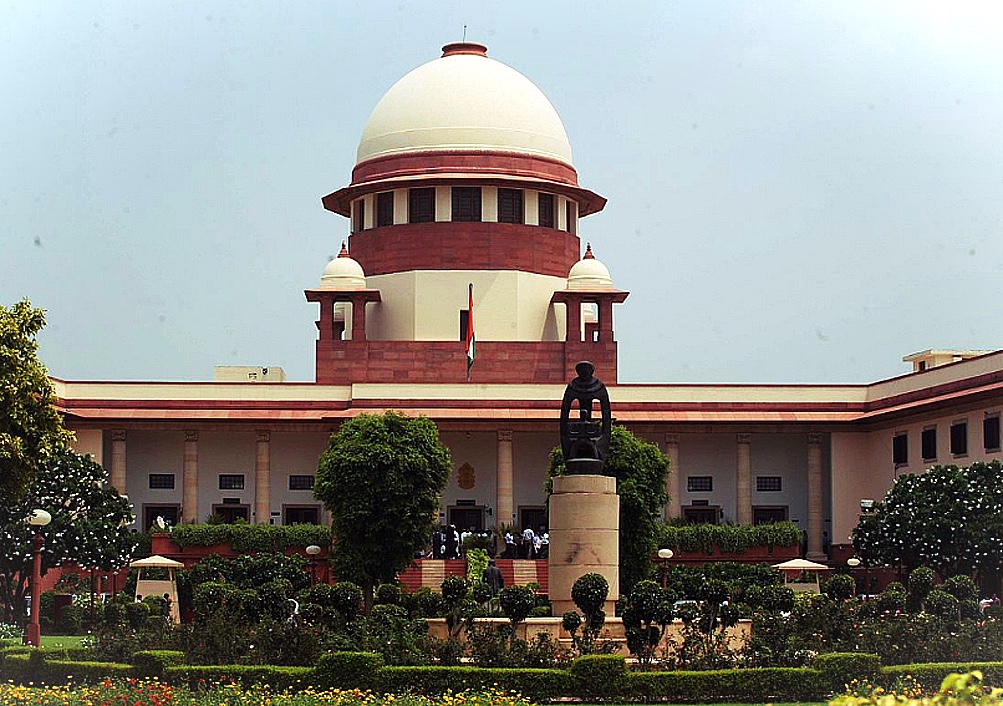J&K People’s Conference moves SC seeking early hearing of pleas against Article 370 move

New Delhi, November 9: The Sajjad Lone-led Jammu and Kashmir People’s Conference has, on behalf of the People’s Alliance for Gupkar Declaration (PAGD), moved the Supreme Court Monday, urging it to list for early hearing the petitions challenging the scrapping of Article 370 and reorganisation of the erstwhile state of Jammu and Kashmir.
The petition comes a fortnight after the central government notified two orders — the Union Territory of Jammu and Kashmir Reorganisation (Adaptation of Central Laws) Third Order and the Jammu and Kashmir Reorganisation (Adaptation of State Laws) Fifth Order, 2020 — that repealed 12 Acts and amended 14 land laws in the UT.
The People’s Conference plea has argued that despite petitions against the withdrawal of Article 370 pending in the apex court and the ensuing pandemic, the Modi government has brought in sweeping changes to laws that were only applicable to the erstwhile state of Jammu and Kashmir. This, the plea added, has impacted the rights of a large number of people staying there, including dilution of safeguards earlier available to them as permanent residents, The Print reported.
On 5 August 2019, the Centre revoked the special status extended to Jammu and Kashmir under Article 370 of the Constitution of India.
A batch of petitions, including one by the Jammu and Kashmir People’s Conference, was filed in the top court against the move. Notices were issued on 28 August 2019, and on 2 March 2020 by a bench led by Justice N.V. Ramana, which had also referred the matter to a constitution bench.
Seven months have lapsed since the reference order was passed, while a year has passed since the move was challenged, and yet the petitions have not been heard on merits, the petitioner told the bench.
Adnan Ashraf, spokesperson for the Jammu and Kashmir People’s Conference, told ThePrint that the petition has been filed pursuant to the last meeting of the Gupkar Alliance when a decision was taken to approach the Supreme Court against the delay in hearing the matter.
“Although the Jammu and Kashmir People’s Conference and I are named as the two petitioners in the application for early hearing, it has support from all members of the Gupkar Alliance,” Ashraf said. “They have agreed to engage senior advocate Rajeev Dhawan as the lawyer to argue the matter in the top court.”
The People’s Conference is the second applicant to move the court with a request for early hearing of the petitions against Article 370. Last week, a similar application was filed by advocate Shakir Shabir.
Asserting the need for an urgent hearing, the petition states that the proceedings challenging Article 370’s dilution will be severely undermined if the request is not accepted by the court.
“Suffice to say the suffering of the people continues as if under conquest without a full-fledged responsible government,” the petition states.
It sets out a list of changes that the Centre has brought about in various laws related to Jammu and Kashmir and extension of applicability of several central laws to the Union Territory.
“These changes will have an irreparable impact on the rights of Indian citizens, including creation of domicile rights and third-party rights in land ownership,” the petitioners said. “These changes, which presume the validity of the aforesaid Impugned Constitution Orders and the Reorganisation Act, unfairly prejudice and pre-judge the case of the Petitioners before this Hon’ble Court.”
These orders, under the Reorganisation Act, the validity and constitutionality of which is under challenge through the petitions pending before the top court, make “far-reaching changes in the legal regime applicable to J&K”, the petition said. According to the petitioners, all the orders are illegal, unconstitutional and void ab initio.
“Serious constitutional questions having far reaching implications and impact are pending consideration in the present batch of petitions and it is imperative that these questions are considered at an early date,” the petitioners stated.
Sign up for our weekly newsletter to stay up to date on our product, events featured blog, special offer and all of the exciting things that take place here at Legitquest.




Add a Comment